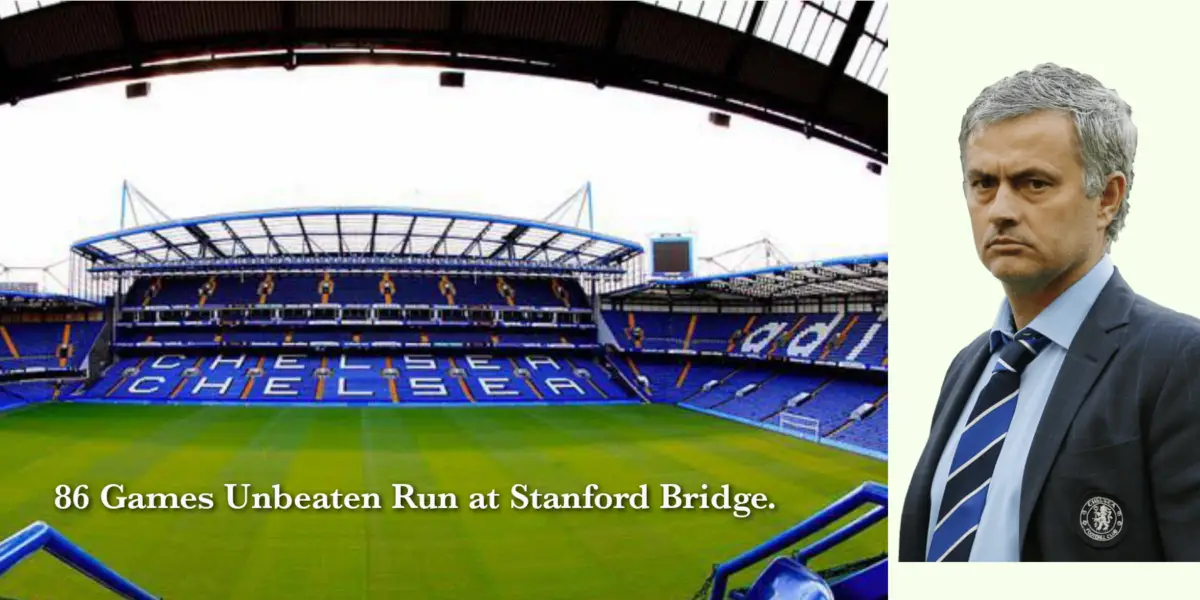Soccer, a global sensation that feeds the hunger of crowd-packed stadiums and quiet street corners alike, possesses a tale of growth as dynamic and contested as its varying epithets. Contrary to popular misconception, football and soccer aren’t two different games but rather two sides of the same coin, a ball-kicking spectacle known under various names across the globe.
The evolution of football, observed in intimate detail, unfurls a fascinating narrative of intersecting histories, varied playing codes, and cross-cultural adaptations.
From its roots embedded in organised British games to its sprawling branches reaching overseas, the sport has adopted the name ‘soccer’ in certain realms and maintained ‘football’ status in others, an intriguing study that illuminates not only the historical context of sport but also its universal impact and ongoing debates around its namesake.

The origins of Football and its relation to Soccer
Origins of Football: An Ancient Past Recalled
The roots of the game we now know as football can be traced back to ancient civilizations. Their games involved a spherical object, usually an inflated pig’s bladder or a leather ball, which was kicked or tossed around for entertainment and physical exercise. These games, as one might imagine, lacked formal rules or regulations, were often quite violent, and bear only a passing resemblance to modern football and soccer.
Formalisation of Rules: Emergence of Different Football Codes
The 19th century brought about a change in these unruly and anarchic games. Schools and universities in England began to write down formal rules to govern these matches, leading to the establishment of the first organised football games. Different institutions, however, had different rules.
Two distinct versions of football codes emerged: games that allowed players to use their hands and carry the ball and those which didn’t. Those which permitted their players to use their hands evolved into the game of rugby, while those which didn’t became known as “association football.”
Development of Rugby and Association Football
Rugby and association football continued to develop in parallel, with each game refining its rules and establishing its own governing bodies. Rugby took its name from Rugby School, where that version of football originated, whereas Association Football was named as such to distinguish it from Rugby Football and other variations of the game.
The Term ‘Soccer’: A Modern American Phrase
The nomenclature ‘soccer’ might have its origins in Britain, but it has found its primary use in the United States and Canada today. These countries both have their independent football sports versions – America has ‘American Football,’ whilst Canada boasts ‘Canadian Football.’ Thus, for these nations, what the rest of the world recognizes as association football is referred to as soccer.
Interestingly, in present-day Britain and indeed in most corners of the globe outside North America, the term most favoured is ‘football.’ ‘Soccer,’ despite being rooted in British history, has faced a decline in usage within Britain due to its perceived Americanism.
Regardless of the chosen moniker- be it football, soccer, or otherwise – this sport’s allure and global popularity remain undiminished.
The spread of Soccer overseas and the use of the term
The Birth of Soccer on British Turf
A precursor to the game of football or soccer, as we know it today, originates in 12th century England. A rugged form of this game was often played out in the bustling streets of London during the middle ages, where players were frequently involved in physically aggressive tactics.
This early variant of the sport lacked modern rules and structure, but it laid the groundwork for the future evolution of football/soccer.
Over time, the demand grew for a more regulated and less perilous form of the game. This desire eventually led to the establishment of the Football Association (FA) in 1863, an organization that not only systematized the sport’s rules but also birthed the moniker ‘association football’.
The term ‘soccer’ elegantly abbreviates ‘association,’ retaining the ‘-er’ suffix. The first documented use of ‘soccer’ emerged in the 1880s, and its popularity surged during the late 19th and early 20th century.
The Spread of Soccer Overseas
Soccer spread overseas in the late 19th and early 20th century, facilitated by England’s global influence as an imperial power.
As people moved across continents, they brought their culture, customs, and games with them, including soccer. The sport was first introduced to continental Europe before progressing to other territories such as the United States, Canada, Australia, and regions in Southern Africa.
The term ‘soccer’ was adopted in some of these regions to differentiate association football from the local forms of football. For instance, in America, football referred to a variant of the sport that is now known as American football.
In Australia, football represented Australian Rules Football, a completely different sport. This led to the adoption of the term ‘soccer’ to distinguish it from these local versions of football.
Soccer’s Cultural Translation
While the game’s fundamental rules remained more or less the same, their cultural reception and interpretation ranged widely.
For instance, in the United States, soccer developed a distinct culture, less followed compared to sports like American football, baseball, and basketball. It became more associated with the youth and was played mainly in schools and colleges.
In contrast, in regions like Africa and South America, soccer was quickly woven into the social and cultural fabric. In these regions, it became a predominant sport, followed passionately by the masses.
The Global Etymology of ‘Soccer’
The nomenclature of the sport known both as ‘soccer’ and ‘football’ has sparked an ongoing global conversation. Interestingly, the term ‘soccer’ is typically employed in the United States, Canada, Australia, and portions of Africa.
However, ‘football’ is the term of choice for a majority of the world, specifically in Europe and South America. At their roots, both terms share the same origin, deriving from the phrase ‘association football’.
The preference between ‘soccer’ and ‘football’ largely depends on the history and cultural context of the sport in each country. Regardless of terminology, the essence of the sport remains undeniably universal.

The modern context: ‘Football’ vs ‘Soccer’
The Modern Debate: ‘Football’ vs ‘Soccer’
The nomenclature ‘Football’ and ‘Soccer’ refer to the same sport but are variably used in line with regional norms. Though ‘Football’ is globally recognised, ‘Soccer’ is predominantly the term employed in America and Canada.
The birth of ‘Soccer’ as a term can be traced back to the formal name for the sport – ‘Association Football.’ This term was prevalent in the United Kingdom during the late nineteenth and early twentieth centuries until ‘Football’ usurped its popularity.
Nevertheless, the term ‘Soccer’ survived, carried across the Atlantic by British immigrants and found a home in the American lexicon.
The shift from ‘Football’ to ‘Soccer’ was not simply a result of linguistic relocation. It also helped distinguish the sport from American Football, which had firmly established itself within the American sports sphere.
The use of the term ‘Soccer’ in contemporary parlance has become a somewhat controversial topic amongst sports fans. In nations like the UK, Australia, and South Africa, the term is often looked down upon as an American adaptation and is seen as a slight on the sport’s traditional nomenclature.
Influence of International Sport Bodies: FIFA and US Soccer
The role of international sporting bodies has been instrumental in dictating the use of the term ‘Soccer.’ FIFA, the apex body governing global Football/Soccer, officially uses the term ‘Football’ in its nomenclature and documents. This has reinforced the usage of ‘Football’ in countries affiliated with FIFA.
On the other hand, the United States Soccer Federation officially uses the term ‘Soccer’ in its name and all related documentation and correspondences. Users of ‘Football’ in America are typically in the minority and are often seen as trying to align with global usage.
Debates and Misconceptions Surrounding The Term ‘Soccer’
The use of ‘Soccer’ has given rise to several misconceptions, along with heated debates among sports enthusiasts. It’s often mistaken that Americans coined the term ‘Soccer’ to differentiate the sport from American Football.
However, in reality, the term ‘Soccer’ came from the UK itself, a contraction of the term ‘Association Football’ popularised by British university students. The Americans merely continued using the term.
Despite the factual history, the term ‘Soccer’ has often been seen as an eccentricity of North America, largely due to the global adoption of the term ‘Football.’
Public debates surrounding the usage of ‘Soccer’ highlight the broader cultural differences and the ongoing process of globalization.
Final Thought
While historical facts lay clarity on the origins of the term ‘Soccer’, its use is entangled in the realms of cultural identity, global adoption, and tradition.
Acclimatisation to local terminology in the sporting realm, thus, forms an interesting case study of how language and culture, even in sports, are interplaying entities.
Football, or ‘soccer,’ as it is known in certain regions, stands today as an irreplaceable piece of the global cultural fabric, binding people and cultures through the simple yet profound joys of the game.
Over time, its rich history has woven a tapestry of diverse practices, terminologies, and cultural interpretations, each adding a unique shade to the vibrant, world-uniting patchwork that is football.
The ongoing queries about its nomenclature, either ‘football’ or ‘soccer,’ not only make way for vibrant discussions but also provide a window into its past and its imprint on future generations.
Much like the sport itself, these discussions are a testament to the diverse human spirit and how we perceive, name, and celebrate our shared passions, making the story of football’s name a game worth diving into.





